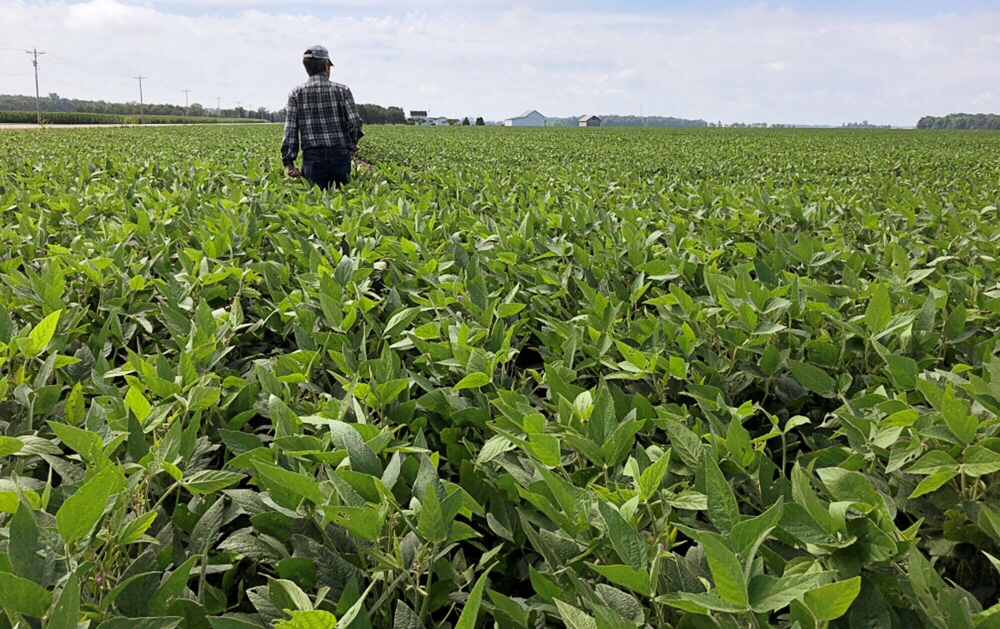
News
October 05, 2025
US soybean farmers, deserted by big buyer China amid trade war, scramble for other importers
China buys no soybeans from autumn US harvestTrade war makes US soy too costly for China buyersAlternative export market...
**US Soybean Farmers Scramble for New Markets as China Trade War Bites**
American soybean farmers are facing a challenging season as the fallout from the ongoing trade war with China significantly impacts their bottom line. Traditionally, China has been a major buyer of US soybeans, particularly from the autumn harvest. However, this year, that crucial market has largely dried up, leaving farmers scrambling to find alternative importers for their crops.
The crux of the issue lies in the increased costs associated with US soybeans for Chinese buyers. Tariffs imposed as part of the trade war have made American soy significantly more expensive compared to beans from other countries, such as Brazil. Consequently, Chinese importers have been turning away from US suppliers, leaving American farmers with a surplus and reduced demand.
This sudden shift has sent shockwaves through the US agricultural sector. Soybean farmers, who rely heavily on exports to China for a substantial portion of their income, are now actively seeking new markets to absorb the massive quantities of soybeans they have harvested.
The search for alternative export destinations is proving to be a complex and demanding task. While other countries like the European Union, Mexico, and Japan represent potential markets, they typically don't purchase soybeans in the same volumes as China. This necessitates a diversified approach, with farmers and agricultural organizations exploring opportunities in smaller, emerging markets across the globe.
The situation also highlights the vulnerability of relying on a single dominant buyer. Agricultural experts are urging farmers to consider strategies for diversifying their crops and reducing their dependence on any one particular market in the long term. This could involve exploring alternative crops or focusing on value-added products that command higher prices.
The impact of the trade war on soybean farmers underscores the far-reaching consequences of international trade disputes. As farmers navigate this challenging period, the hope is that new markets can be secured to mitigate the economic impact and ensure the long-term viability of the US soybean industry. The coming months will be crucial in determining the extent of the damage and the success of efforts to find alternative buyers for the valuable crop.
American soybean farmers are facing a challenging season as the fallout from the ongoing trade war with China significantly impacts their bottom line. Traditionally, China has been a major buyer of US soybeans, particularly from the autumn harvest. However, this year, that crucial market has largely dried up, leaving farmers scrambling to find alternative importers for their crops.
The crux of the issue lies in the increased costs associated with US soybeans for Chinese buyers. Tariffs imposed as part of the trade war have made American soy significantly more expensive compared to beans from other countries, such as Brazil. Consequently, Chinese importers have been turning away from US suppliers, leaving American farmers with a surplus and reduced demand.
This sudden shift has sent shockwaves through the US agricultural sector. Soybean farmers, who rely heavily on exports to China for a substantial portion of their income, are now actively seeking new markets to absorb the massive quantities of soybeans they have harvested.
The search for alternative export destinations is proving to be a complex and demanding task. While other countries like the European Union, Mexico, and Japan represent potential markets, they typically don't purchase soybeans in the same volumes as China. This necessitates a diversified approach, with farmers and agricultural organizations exploring opportunities in smaller, emerging markets across the globe.
The situation also highlights the vulnerability of relying on a single dominant buyer. Agricultural experts are urging farmers to consider strategies for diversifying their crops and reducing their dependence on any one particular market in the long term. This could involve exploring alternative crops or focusing on value-added products that command higher prices.
The impact of the trade war on soybean farmers underscores the far-reaching consequences of international trade disputes. As farmers navigate this challenging period, the hope is that new markets can be secured to mitigate the economic impact and ensure the long-term viability of the US soybean industry. The coming months will be crucial in determining the extent of the damage and the success of efforts to find alternative buyers for the valuable crop.
Category:
Business